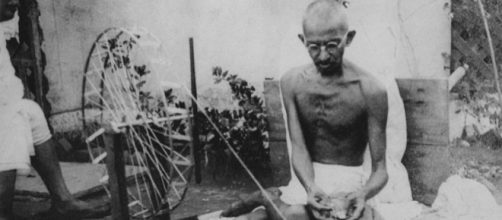The story of the removal of a statue of Mahatma Gandhi from the University of Ghana campus is about a year old but bears mentioning in the light of the War against Statues that is now embroiling the western world. The Gandhi statue was a gift from the government of India as a symbol of the friendship between that country and Ghana. However, a group of faculty members at the university circulated a petition demanding its removal because Gandhi was a racist. The government of Ghana duly complied with the requirements.
Gandhi as the father of Indian independence
Gandhi is well known as the father of Indian independence from British rule, having helped to bring down the British Raj through use of nonviolent, passive resistance tactics. His campaign served as an example for Dr. Martin Luther King’s struggle to bring civil rights to African Americans in the 1950s and 1960s. Gandhi also preached tolerance for all religious faiths, resulting in his assassination by a Hindu extremist. It should also be noted that Gandhi was lucky to have had the British, who possessed a conscience, as opponents. Many historians do not believe that passive resistance would work against more totalitarian regimes, say Nazi Germany or Soviet Russia.
Was Gandhi a racist?
Somewhat lesser known fact about Gandhi is that he lived for 21 years in South Africa. During much of his sojourn in that country, he held slightly different views about the British Empire than he did when he returned to India. He was a supporter of imperialism. Moreover, at least in the opinion of the Ghanaian academics, he espoused the racial superiority of Indians over black Africans. His views changed later, especially when he suffered racism at the hands of the British, but the fact of his earlier views seems to have stuck to him in Africa.
The view of Gandhi as a racist will no doubt be disconcerting to westerners who regard him as a hero and as an example to be followed.
However, like most people (including a lot of Confederate generals) Gandhi was a complicated man. In 1983, when the hagiographic movie was released, the writer Richard Grenier published an essay “The Gandhi Nobody Knows” the detailed some of the more unsavory aspects of the Mahatma’s life. His views on personal hygiene, for example, were particularly gross. His vow of chastity was somewhat nuanced.
All that should not take away from Gandhi’s role in achieving the independence of India, now a nascent super power with nuclear weapons and a space program. The same courtesy might be extended to others.


